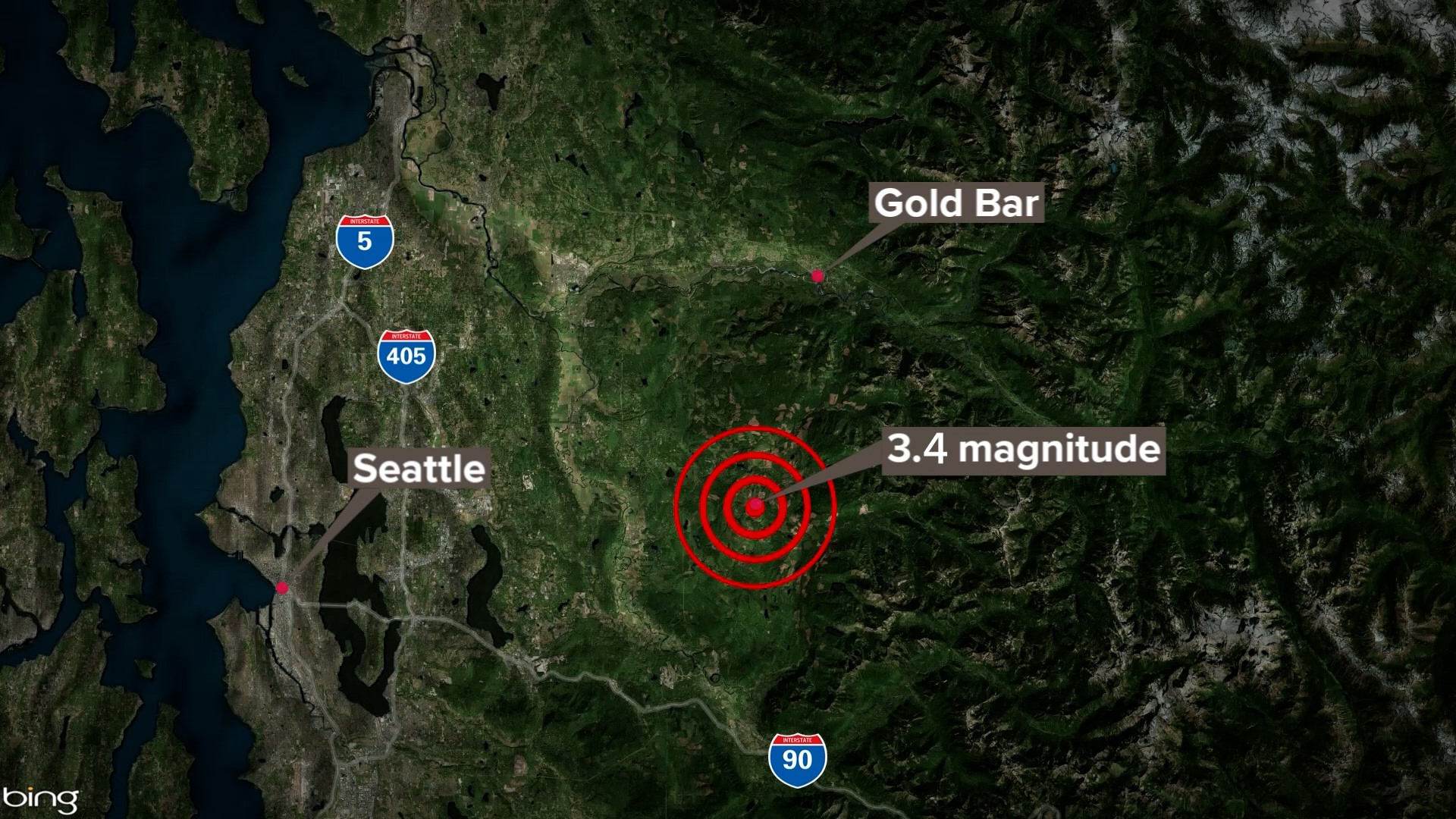CARNATION, Wash. — A 3.4 magnitude earthquake hit near Carnation early Thursday morning, according to the Pacific Northwest Seismic Network (PNSN).
The earthquake struck just after 5 a.m. Thursday.
The quake hit just over 8.5 miles east of Carnation and about 30 miles southeast of Everett. A community intensity map compiled by PNSN and the United States Geologic Service (USGS) shows the shaking was felt as far west as Oak Harbor and near Bremerton.
Earthquakes around western Washington
Many earthquakes in Washington state are linked to the motion of the Juan de Fuca Plate and the North America Continental Plate moving against each other as the Juan de Fuca Plate slips beneath the North American continent, according to PNSN. This is called the Cascadia Subduction Zone.
According to the Washington State Department of Natural Resources (DNR), earthquakes happen in Washington every day, but most are too small to be felt. The state has the second highest risk in the U.S. of experiencing a large and damaging earthquake because of its geologic setting.
The Pacific Northwest typically experiences three types of earthquakes:
- Shallow fault quakes: Ruptures in faults located in the upper 18 miles of the Earth's crust. These earthquakes typically last 20 to 60 seconds and shaking is localized to the area near the fault, according to the DNR.
- Deep earthquakes: Deep faults happen when two tectonic plates collide and one plate slips beneath the other one. These quakes can impact a large area but are less intense.
- Subduction zone earthquakes: This earthquake results from the tension of an oceanic plate slipping beneath a continental plate. When enough stress builds, the fault will rupture, releasing a massive amount of energy. The Cascadia Subduction Zone has the potential for these types of earthquakes and has ruptured in the past. It is one of Washington state's biggest hazards, according to DNR.

